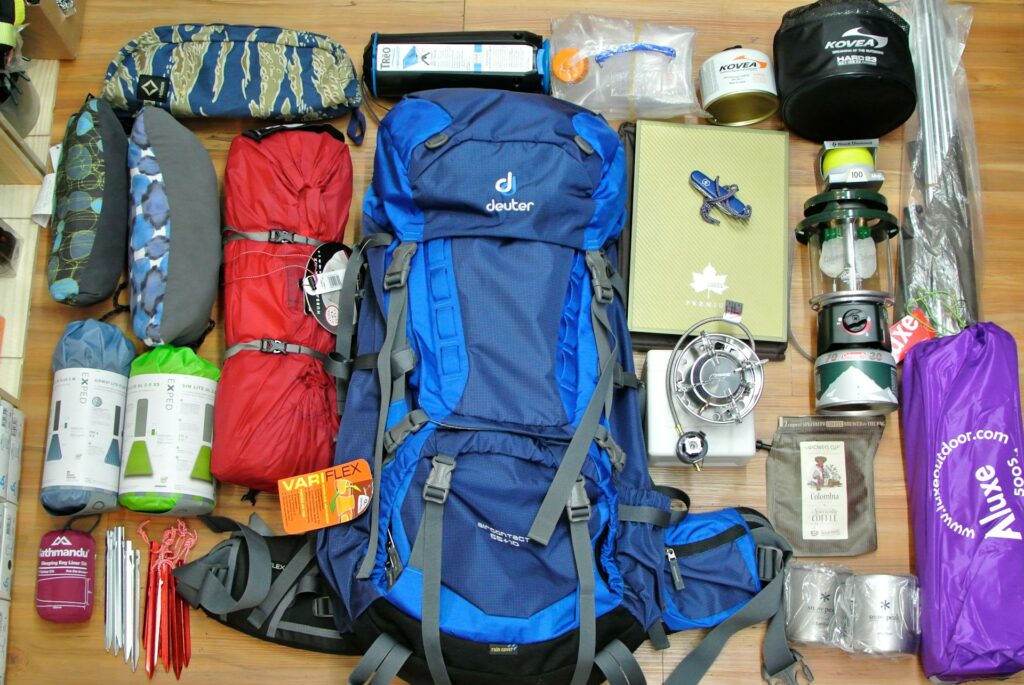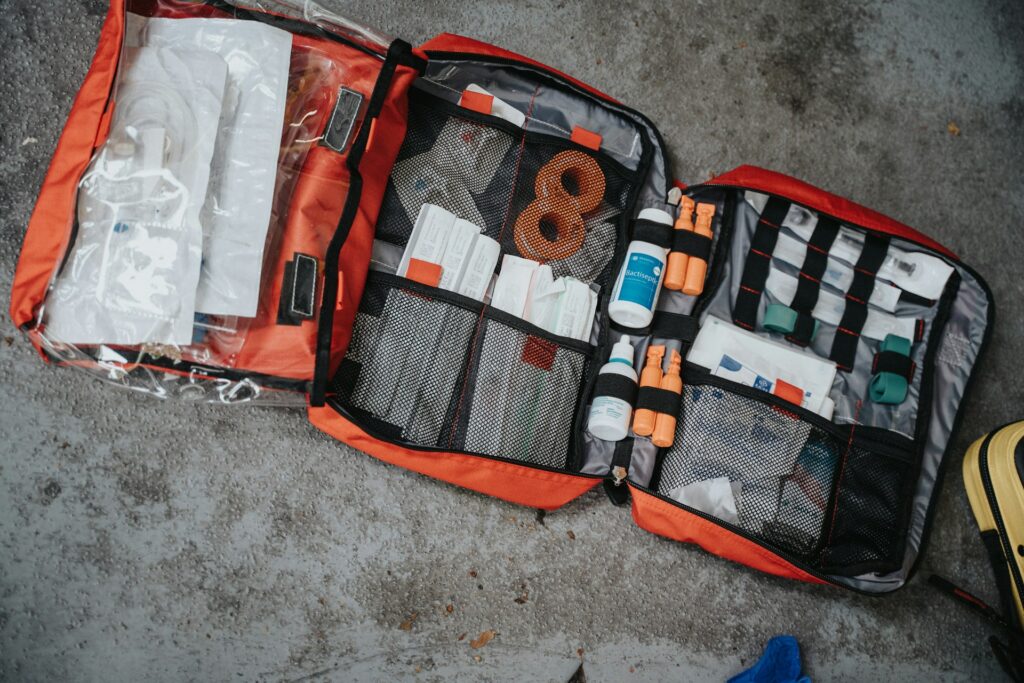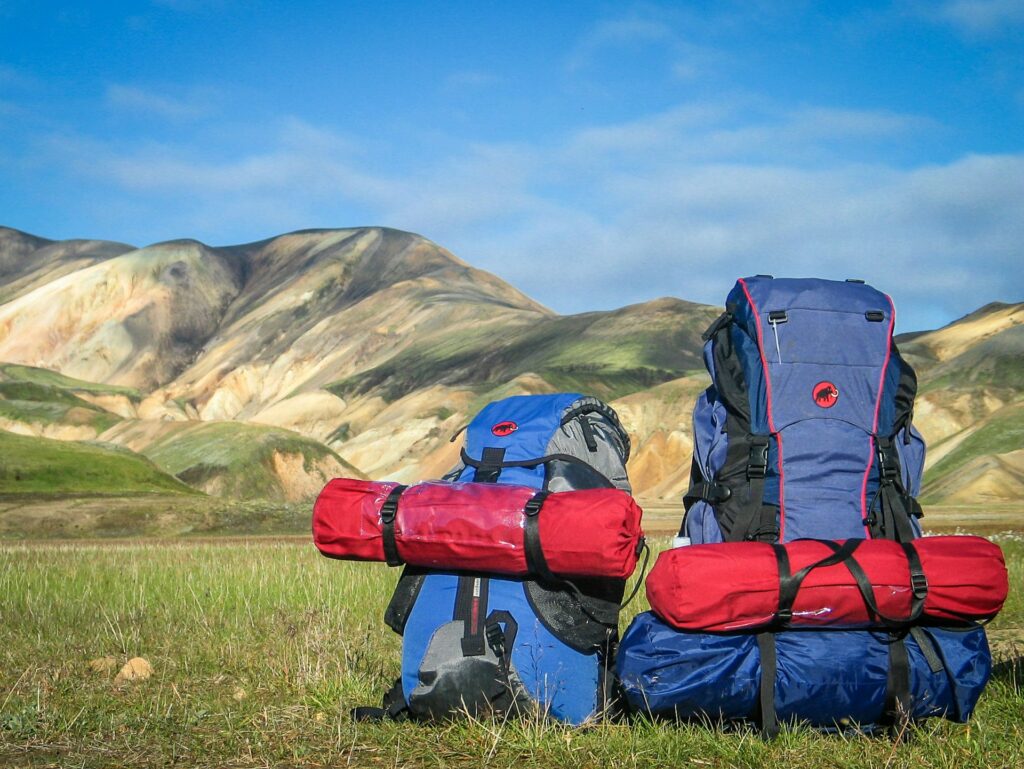What to Pack for Beach Camping: A Comprehensive Guide
Are you ready to trade the hustle and bustle of everyday life for a tranquil beach camping adventure?
Whether you’re a seasoned beach camper or it’s your first time venturing into the world of sandy shores and starlit nights, packing for a beach camping trip can be both exciting and overwhelming. The serene sound of crashing waves, the warmth of the sun on your skin, and the freedom of sleeping under the open sky all await you. But before you embark on your adventure, it’s essential to pack the right gear and essentials to ensure you have a comfortable and enjoyable experience.
Fear not! In this comprehensive guide, I’ll walk you through everything about what to pack for beach camping and what you’ll need to pack to make the most of your beach camping experience. So grab a pen and paper (or your notes app) and let’s get packing!
Essential Gear for Beach Camping

Shelter and Sleeping Equipment
- High-quality tent: Make sure your tent is sturdy, lightweight, and comes with adequate ventilation.
- Ground tarp: Protect your tent floor from sand, sharp rocks, and moisture.
- Sleeping bag and sleeping pad: Choose ones suitable for the beach climate.
Cooking Supplies
- Portable camping stove or grill: Opt for a compact, easy-to-use option.
- Cooking utensils: Pack pots, pans, spatulas, and other essentials for preparing delicious meals.
- Cooler: Keep your food and drinks cold in the hot beach weather.
- Firestarter materials: Bring matches, lighters, or a fire starter kit for campfires.
Clothing and Personal Items
- Swimwear: Don’t forget your bathing suits and beach attire.
- Sun protection: Pack sunscreen, sunglasses, hats, and UV-protective clothing.
- Quick-dry towels: Essential for drying off after a swim.
- Comfortable camp clothes: Include lightweight and breathable clothing options.
- Toiletries: Bring along your favorite products for personal hygiene.
Beach Essentials
- Beach chairs and umbrellas: Stay comfortable while lounging on the beach.
- Beach towels: Have separate towels for the beach and showering.
- Beach toys: Frisbees, beach balls, and snorkeling gear for added entertainment.
- Portable beach cooler: Keep your drinks and snacks cool while you soak up the sun.
Miscellaneous Items
- First aid kit: Be prepared for minor injuries and emergencies.
- Insect repellent: Keep pesky bugs at bay.
- Trash bags: Leave no trace by properly disposing of your waste.
- Multi-tool or pocket knife: A versatile tool for various tasks.
- Headlamp or flashlight: Illuminate your way in the dark.
Food and Drinks for Beach Camping

Meal Planning
- Plan your meals ahead to avoid food wastage.
- Opt for easy-to-prepare and non-perishable meals.
- Consider versatile ingredients that can be used for multiple dishes.
Snacks
- Pack a variety of snacks like trail mix, granola bars, fruits, and chips.
- Don’t forget to bring plenty of water to stay hydrated throughout your trip.
Cooking Tips
- Prepare foil packet meals for easy clean-up.
- Try cooking over the campfire for a fun outdoor cooking experience.
- Keep perishable food items in the cooler to prevent spoilage.
Safety Tips & Emergency Essentials for Beach Camping

Sun Protection
- Apply sunscreen regularly and choose a high SPF.
- Wear UV-protective clothing and accessories like hats and sunglasses.
- Seek shade during peak sun hours to avoid sunburns.
Water Safety
- Swim in designated areas with lifeguards on duty.
- Always keep an eye on children near the water.
- Be cautious of rip currents and heed warning signs.
Wildlife Awareness
- Respect wildlife and their habitats while camping.
- Store food securely to prevent attracting animals.
- Be aware of your surroundings and watch out for snakes and insects.
Navigation Tools
- Map, compass, or GPS device for navigating the beach and surrounding areas.
- Whistle or signaling device for attracting attention in case of emergencies.
- Emergency contact information and location details in case of getting lost.
First Aid Kit
- Bandages, gauze, adhesive tape, and antiseptic wipes for treating wounds.
- Pain relievers, antihistamines, and other essential medications.
- Emergency blanket or survival shelter in case of exposure to the elements.
Emergency Supplies
- Fire extinguisher for emergencies involving fire.
- Multi-tool or knife for various tasks.
- Reusable water bottle or hydration pack for staying hydrated.
Leave No Trace Principles
Dispose of Waste Properly
- Pack out all trash and dispose of it in designated receptacles.
- Don’t bury or burn trash as it can harm the environment.
- Avoid using soap in natural water sources to protect aquatic life.
Minimize Campfire Impact
- Use established fire rings or portable stoves for cooking.
- Keep fires small and under control to prevent wildfires.
- Fully extinguish fires before leaving the campsite.
Entertainment and Recreation

Beach Games
Bring along beach games such as frisbees, volleyball, or paddleball for hours of entertainment on the sand. These activities are perfect for bonding with family and friends.
Snorkeling Gear
Explore the underwater world with snorkeling gear, including masks, snorkels, and fins. Many beaches offer opportunities for snorkeling among colorful marine life and coral reefs.
Books or Magazines
Unplug and unwind with a good book or magazine while lounging in a hammock or beach chair. Choose reading material that suits your interests and helps you relax.
Tips for Efficient Packing
Prioritize Essentials
Focus on packing essential items that contribute to your comfort, safety, and enjoyment. Avoid overpacking by carefully considering each item’s necessity.
Consider Weight and Space Limitations
Keep weight and space limitations in mind when selecting gear and equipment. Choose lightweight and compact options that are easy to transport and fit within your backpack or vehicle.
Pack Multi-functional Items
Maximize space and utility by packing multi-functional items that serve multiple purposes. For example, a sarong can double as a beach towel, sunshade, or makeshift bag.
Choosing the Right Backpack

Size and Capacity Considerations
Select a backpack with an appropriate size and capacity for your beach camping trip. Consider the duration of your stay, the number of people in your group, and the gear you need to carry.
Comfort and Fit
Prioritize comfort and fit when choosing a backpack. Look for adjustable straps, padded back panels, and hip belts for even weight distribution and support.
Preparing for Weather Changes
Check Weather Forecasts
Stay informed about weather conditions before and during your beach camping trip. Prepare for potential weather changes by packing appropriate clothing layers and gear.
Pack Appropriate Clothing Layers
Bring clothing layers that can be easily added or removed to accommodate changing weather conditions. Include waterproof and windproof outer layers for protection against rain and wind.
Setting Up Camp
Choosing a Suitable Spot
Select a campsite that is safe, level, and away from high tide zones. Look for natural windbreaks and shade, but avoid setting up camp too close to dunes or sensitive habitats.
Tent Setup Tips
Pitch your tent securely using stakes or sandbags to anchor it in place. Ensure proper ventilation and orientation to maximize airflow and minimize condensation.
Maintaining Cleanliness
Proper Hygiene Practices
Maintain personal hygiene by washing hands regularly with soap and water or using hand sanitizer. Use designated restroom facilities whenever possible and dispose of waste properly.
Trash Management
Minimize waste and litter by practicing responsible trash management. Pack out all trash, including food scraps and packaging, and dispose of it in designated receptacles or recycling bins.
Enjoying the Experience

Embrace the Simplicity
Savor the simple pleasures of beach camping, such as watching the sunrise over the ocean or stargazing under the night sky. Disconnect from technology and immerse yourself in the natural beauty surrounding you.
Connect with Nature
Take time to connect with nature and appreciate the coastal ecosystem. Explore tide pools, go birdwatching, or simply listen to the sound of the waves crashing against the shore.
Conclusion
As you prepare for your beach camping adventure, packing the right gear and essentials is key to a successful and enjoyable experience. From shelter and sleeping gear to food and cooking essentials, clothing, and personal items, as well as safety and emergency supplies, each item on your packing list plays a crucial role in ensuring your comfort and well-being during your trip.
With this comprehensive guide on what to pack for beach camping, you’re well-equipped to embark on a memorable journey filled with sun, sand, and sea. So grab your gear, head to the beach, and immerse yourself in the beauty of nature as you create lasting memories under the open sky. Happy camping!
Frequently Asked Questions
For more information on traveling and destination recommendations, check out my other articles on WanderingNotLost.org
Wanderingnotlost.org is a participant in the Amazon Services LLC Associates Program, an affiliate advertising program designed to provide a means for website owners to earn advertising fees by advertising and linking to amazon(.com, .co.uk, .ca etc) and any other website that may be affiliated with Amazon Service LLC Associates Program.As an Amazon Associate, I earn from qualifying purchases




